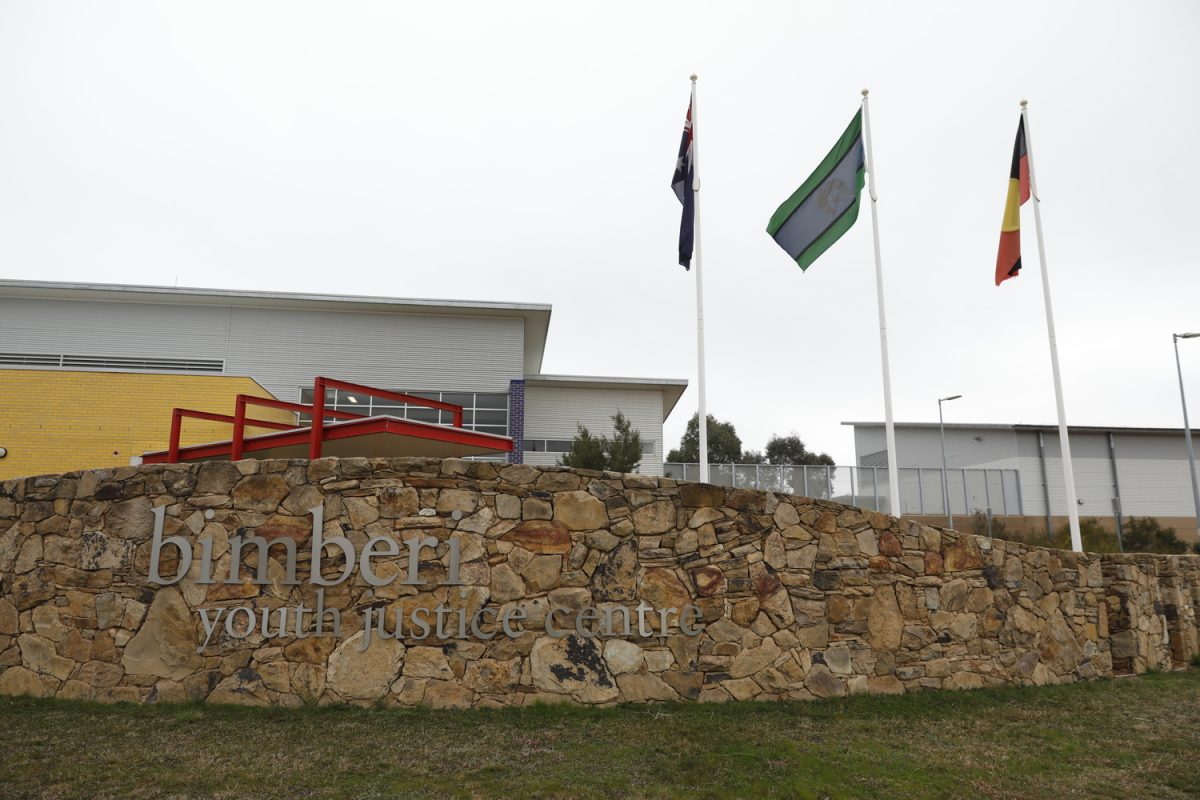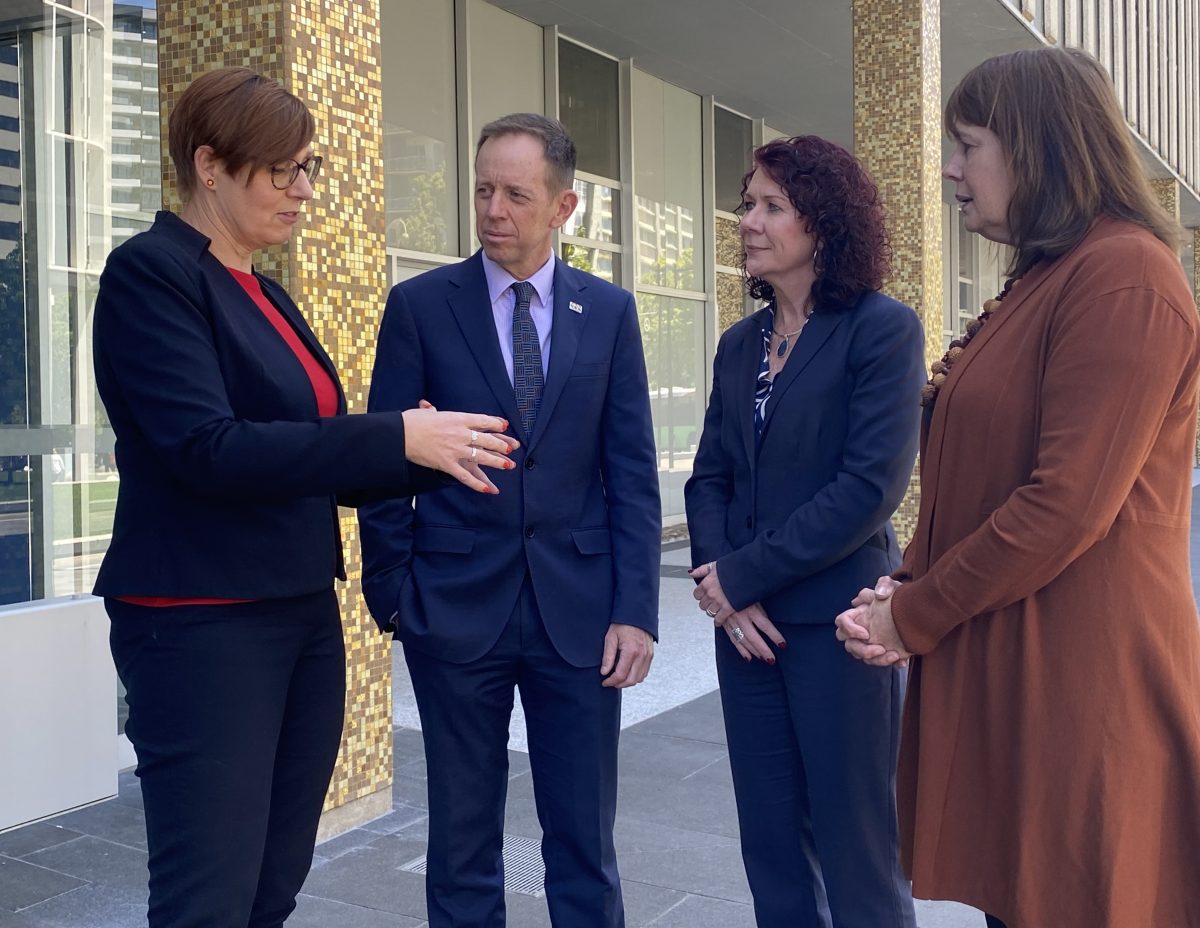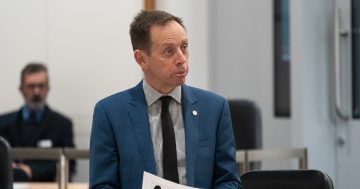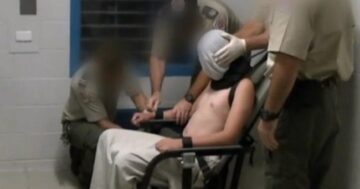
More children will be diverted away from the criminal justice system and into support services as the minimum age of criminal responsibility is steadily raised to 14 by 2025. Photo: File.
Within a fortnight, the minimum age of criminal responsibility in the ACT will be raised to 12.
The Justice (Age of Criminal Responsibility) Legislation Amendment Bill 2023 passed the Legislative Assembly on Wednesday (1 November) with just a few changes from what was originally presented in May.
It will see children under the age of criminal responsibility referred to a Therapeutic Support Panel rather than the courts, meaning young people and their families can be referred to and access support services needed rather than interacting with the criminal justice system.
The crimes for which young people could be referred to the Therapeutic Support Panel will be expanded to also include harmful conduct such as significant property damage, including arson or starting bushfires, and cruelty to animals, as well as ensuring victim’s rights are still protected if a person has been harmed by someone under the criminally responsible age.
“What we know is that, even if we take away the criminal component of it, there will still be people who suffer harm as a result of the activities of some young people,” Attorney-General Shane Rattenbury said.
“We want to be very clear that those victims would still have suffered harm, and we want to provide them with the full supports that are currently available through a range of legislation.”
It also introduces a new community-based intensive therapeutic sentence, known as a Therapeutic Correction Order, for children aged 14 to 18 years, which can also be applied to children aged 12 to 13 for more serious offences.”
Some other changes were attempted by both the Canberra Liberals and ACT Greens.
Greens MLA Andrew Braddock tried to amend the legislation to include a sunset clause for so-called “carveouts” or exceptions in the scheme. Four serious offences will maintain a minimum age of criminal responsibility of 12 years: murder, intentionally inflicting grievous bodily harm, sexual assault in the first degree and an act of indecency in the first degree.
Mr Braddock argued that children can be held criminally responsible for one offence but not another.
He said including a sunset clause on the exceptions would bring them to a “natural end”.
The Canberra Liberals also disagreed with the exceptions but didn’t want the minimum age of criminal responsibility to proceed beyond 12 years.
“Unilaterally raising the age to 14 years creates a significant legal inconsistency with our neighbouring jurisdictions, which comes with the risk of unintended consequences,” Shadow Attorney-General Peter Cain said.
“The proposed carveouts for children aged 12 or 13 years convicted of severe crimes such as murder or sexual assault further represent a profound legal inconsistency and is logically incoherent.”
Mr Cain argued for the legislation to be reviewed in two years’ time before any consideration is made to raise the age to 14, which has been slated for 1 July 2025.
Both amendments failed.
The Therapeutic Support Panel is expected to be established by 27 March 2024, with a specialist support service contracted by the end of the year in the interim.
Health Minister Rachel Stephen-Smith said she was confident the current system would be able to handle the “small handful” of 10 and 11-year-olds who could be referred to the panel in the meantime.
A small number of 10 and 11-year-olds are engaged in the ACT’s criminal justice system each year, and between 40 and 50 people aged 12 and 13.
Ms Stephen-Smith explained that this was why a stepped-up approach to raising the age was needed.
“We know that 12 and 13-year-olds are more likely to come into contact with the criminal justice system than 10 and 11-year-olds, much more likely, so ensuring that there is an appropriate, therapeutic system in place for those young people … [so] that we’re not just delaying engagement with criminal justice system [until they’re older], we’re actually preventing it.”
She said the Therapeutic Support Panel would create a “no wrong door” option so that people didn’t have to contact multiple services themselves to get the support they need.
“[It’s] about bringing all that knowledge together and understanding, so when families are really struggling, when children and young people are really struggling with needs that might require support from multiple service systems, that there is a door that they can come through that will help them bring together all that knowledge … to get their lives back on track,” Ms Stephen-Smith said.
The Therapeutic Support Panel will also be used to find out if there are any gaps in the system that need to be filled before the age is raised to 14.

Rachel Stephen-Smith, Shane Rattenbury, ACT Children and Young People Commissioner Jodie Griffiths-Cook and ACT Aboriginal and Torres Strait Islander Children and Young People Advocate Barb Causon. The legislation has been three years in the making. Photo: Claire Fenwicke.
Ultimately, Mr Rattenbury said this reform was about “changing the trajectory” for young people and improving the safety of the whole community.
“We know that our young people can get themselves into harmful situations, either for themselves or for others, and they need support to address that behaviour,” he said.
“What we want to make sure is that young people are not ending up in the criminal justice system, but rather they’re being delivered therapeutic supports to put their lives on a different track and make our whole community safer.”





















